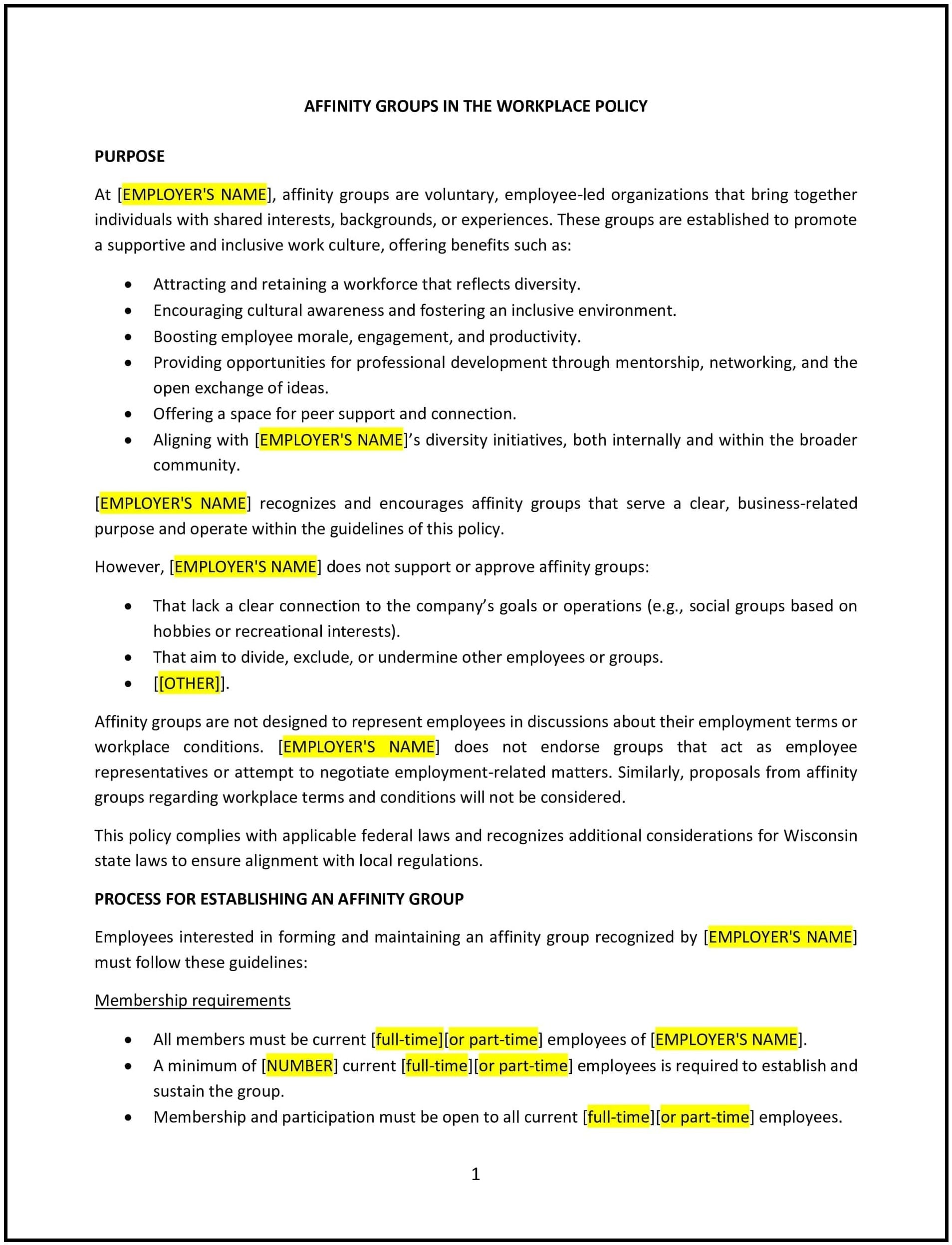Affinity groups in the workplace policy (Wisconsin): Free template
Got contracts to review? While you're here for policies, let Cobrief make contract review effortless—start your free review now.

Customize this template for free
Affinity groups in the workplace policy (Wisconsin)
In Wisconsin, an affinity groups in the workplace policy encourages inclusivity and diversity by supporting employee-led groups that share common characteristics, interests, or goals. These groups provide employees with a sense of community, foster networking opportunities, and support personal and professional growth. By implementing this policy, businesses can promote a more inclusive culture, help retain top talent, and strengthen employee engagement.
This policy outlines the framework for establishing, managing, and supporting affinity groups in the workplace, including eligibility, governance, and the role of management in facilitating these groups.
How to use this affinity groups in the workplace policy (Wisconsin)
- Define purpose and scope: Clearly outline the purpose of affinity groups, such as fostering diversity, inclusion, and networking among employees with shared interests or backgrounds.
- Establish group formation guidelines: Specify how employees can form and join affinity groups, including criteria for membership, leadership roles, and group structure.
- Ensure management support: Define the role of management in supporting affinity groups, ensuring that resources and time are allocated for group activities.
- Promote inclusivity: Encourage the formation of diverse groups that represent a wide range of identities, interests, and backgrounds to foster an inclusive work environment.
- Align with legal requirements: Ensure the policy complies with Wisconsin labor laws and federal anti-discrimination regulations to avoid legal risks.
Benefits of using an affinity groups in the workplace policy (Wisconsin)
An affinity groups in the workplace policy provides several advantages for businesses in Wisconsin:
- Promotes diversity and inclusion: Supports a culture where all employees feel valued and included, leading to better morale and job satisfaction.
- Fosters employee engagement: Employees in affinity groups are more likely to be engaged, leading to higher productivity and reduced turnover.
- Enhances networking opportunities: Affinity groups offer networking and mentorship opportunities, which can support career development and business growth.
- Strengthens company culture: These groups contribute to a positive work culture by encouraging open dialogue, cross-departmental collaboration, and shared learning.
- Mitigates legal risks: By adhering to anti-discrimination laws and promoting an inclusive environment, businesses reduce the risk of legal disputes related to workplace discrimination.
Tips for using an affinity groups in the workplace policy (Wisconsin)
- Encourage voluntary participation: Ensure that participation in affinity groups is entirely voluntary to prevent any perception of pressure or favoritism.
- Provide resources: Offer resources such as meeting spaces, funding for events, and time for group activities to support the success of affinity groups.
- Foster leadership: Encourage employees to take on leadership roles within affinity groups to develop their management skills and help others grow.
- Ensure regular communication: Set up channels for communication between affinity groups and leadership to ensure their needs and concerns are heard.
- Regularly review effectiveness: Periodically evaluate the impact of affinity groups on employee engagement, diversity, and company culture.